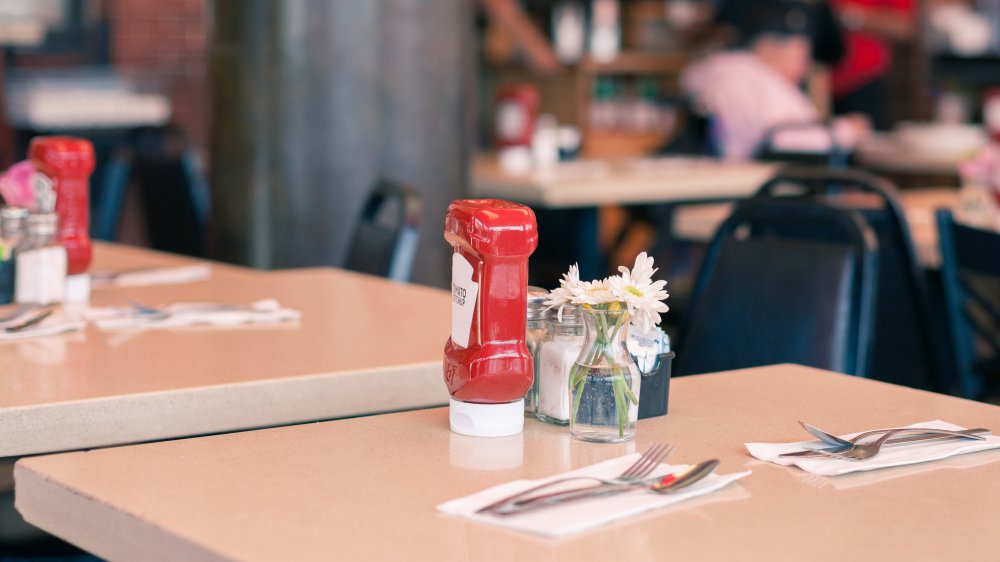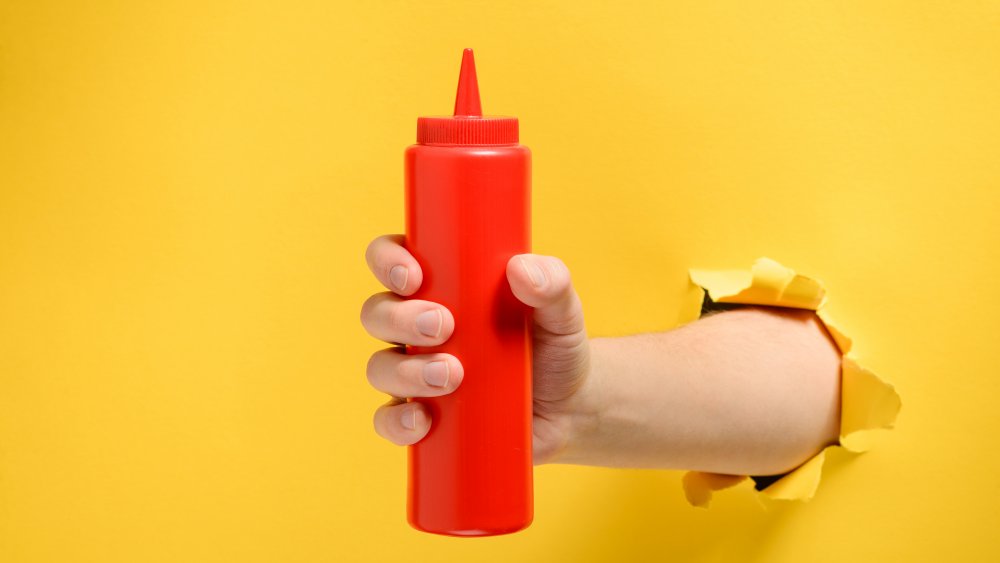Think Twice Before Using Restaurant Ketchup Bottles
If you ever wondered what standards need to be met in order for a restaurant to be judged as an "A" grade restaurant, you need only look through manuals like New York City's Blue Book, aka What to Expect When You're Inspected. Like our school grades, the letters we see at the doors of our restaurants aren't random. It represents a comprehensive list of requirements that need to be met before a restaurant is considered safe for us to eat in. The criteria involve public health violations, which pose an immediate health threat; critical violations, which may not be an immediate threat but are just gross, say evidence of roaches or rats and mice that live in the area; and general violations like how clean a restaurant's toilets might be (via FiveThirtyEight).
With all that in mind, we'd be forgiven for thinking that all our restaurants (particularly the A grade ones) should be free from worry. But research has shown that, while most restaurants maintain unparalleled levels of hygiene in the kitchen, some things — like ketchup bottles — are still slipping through the cracks. In fact, they may be one of the grossest things you touch.
Restaurant ketchup containers are full of bacteria
Researchers from Bowling Green State University swabbed salt shakers, menus, and ketchup bottles from four different restaurants on six separate occasions to see what they might find. Men's Health says they found that aerobic bacteria, which needs oxygen to thrive, was commonly found in each of the surfaces they studied. All the ketchup bottles swabbed had aerobic bacteria; four percent had coliform bacteria (which the New York Health Department says is normally found in human waste); and four percent had E.coli, which has been known to cause food poisoning (via Web MD).
University of Arizona public health professor Kelly Reynolds says this happens because restaurants may scrub their surfaces religiously, but they may not have thought about cleaning condiment containers like salt, pepper, ketchup, and mustard. So while you may be diligent about washing your hands and keeping your surroundings germ-free, it takes just one person who might not take hand washing as seriously to leave a potentially harmful germ trail behind (via AARP).
This discovery leads us to make two suggestions — either stay away from restaurant ketchup bottles or bring alcohol wipes in your purse, so you can clean your eating space before beginning your meal. You're welcome.

